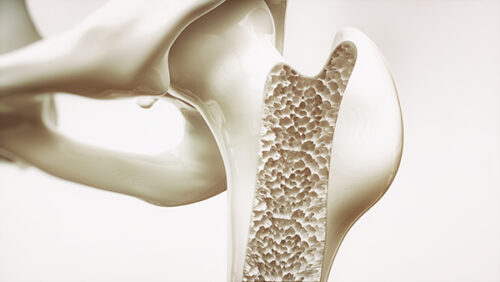Did you hear about the study in the news today?
Updated May 9, 2019

Jeff Novick, MS, RDN
Health information today is much more commonplace than ever before. Every day, if not every hour, we hear of another new study or report on health. These reports can be very confusing because if you listen to them, one day (or hour) something is good and the next day (or hour), it’s bad.
In trying to understand all of this conflicting and confusing information, it’s important to realize that real science doesn’t work this way and/or change its mind every day (or hour), even though the media wants us to think it does. According to them, one day coffee is good and one day coffee is bad. One day chocolate is good and one day chocolate is bad. One week eggs are bad and the next week eggs are good.
What’s a person to do?
The truth is that this kind of information just keeps the public dazed and confused. They throw their hands up in frustration thinking that no one really knows anything, so people just continue doing what they were doing all along. Or they use this confusion as an excuse to do whatever they want to do and to continue indulging in any bad habits they may have. After all, no one really knows. Right?
Wrong.
Outside of the media hoopla on these topics through its various outlets, a real scientist and student of health should not be swayed by the results of any one study — ever.
The reason is that true science is really a slow-moving unfolding of information that builds on what is known and adds to it, little by little, over time. It also looks for and acknowledges its own flaws and weaknesses. It makes conclusions based on established and proven methods that deal with methodology, power, strength and levels of significance. It doesn’t suddenly jump from one place to another every time a new study comes out. Eggs didn’t go from bad to good this week and neither did coffee.
But media outlets — including the internet, social media, health magazines, videos and more, even some health care professionals, thrive on this endless flow of (mis)information. They also thrive on presenting it in a way that creates endless doubt and confusion, which is very good for readership, advertisers, and product sales. Unfortunately, because of human nature and the way our minds work, people are drawn to these types of “reports” and the faulty conclusions presented on a daily, if not hourly, basis these days.
This flow of ever-breaking, conflicting, unsubstantiated “news” is not good for true science or for your health as these reports and the confusion they create rarely, if ever, address the primary problems causing the majority of our health problems. They act as little more than distractions because as long as people continue to argue over or focus their energies on these ancillary issues, they miss putting their real time, energy and efforts into doing what we know really works and what really matters.
Remember, studies overt the last few decades, have repeatedly shown that less then 5% of Americans follow the basic healthy lifestyle habits (with regard to smoking, alcohol, body weight, activity and diet) and less then 1% follow the basic minimum nutrition guidelines of a healthy diet. Yet up to 90% claim they consume a healthy diet and over 1/3 of those say they consume a very healthy diet.
With regard to health, decisions about what we eat and how we live should be based on a logical and reasoned analysis of the overwhelming majority of evidence as evaluated and supported by the majority of the research studies. It should not be based on any one study (or two), especially when the study has just come out and especially if all we have read (or know) is a mass media account of the new study. Sure, you can always find a study or article that appears to say the opposite or support an opposing view, but we have to look closely at it, how it was done, the methodology, the statistical analysis, how the results were interpreted, who funded it, its strength and limitations, and the totality of the evidence to date. And, of course, our own biases, which we all have.
While some may think my perspective and the conclusions I draw (with which you are welcome to disagree) are alternative, holistic, complimentary, hygienic, natural, vegetarian, vegan, etc., to me, they are just simple, conservative, basic commonsense guidelines and principles of good health that are supported by sound science — and not just today’s passing headline.
In Health,
Jeff
Recommended Articles

Holiday Meal Planning & Recipes

Can Working Out Lower Cholesterol? No.






